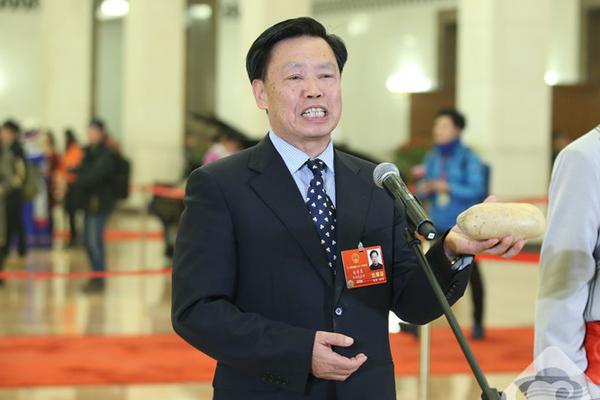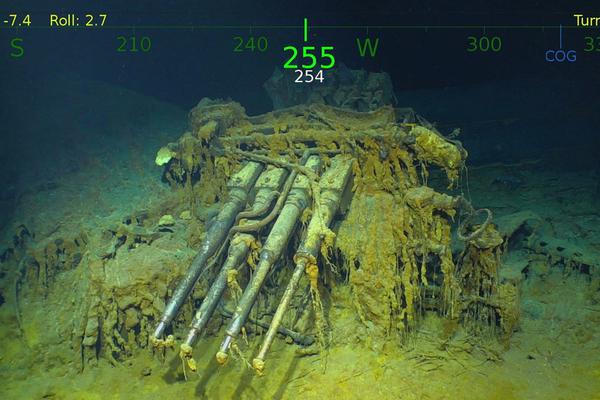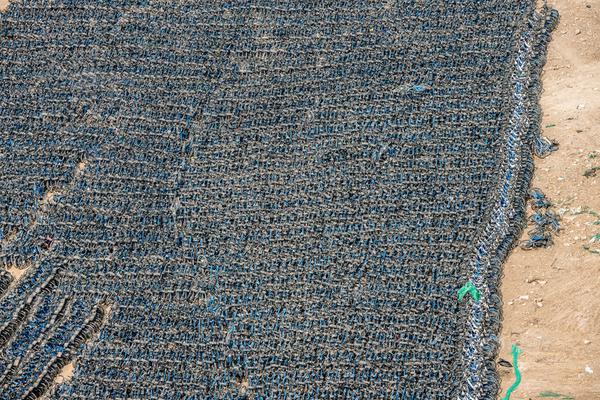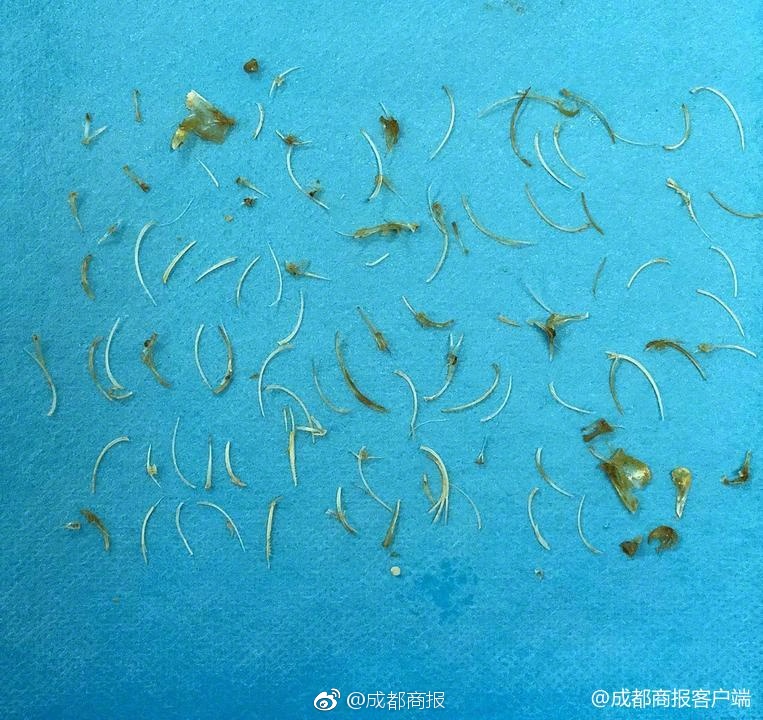
1. The five functions of the operating system are processor management, memory management, device management, file management and job management. Processor management The most basic function of processor management is to process interrupt events. After configuring the operating system, various events can be processed.
2. The main function of the computer operating system is process management, and its work is mainly process scheduling. In the case of a single user and a single taskNext, the processor is only monopolized by one user's task, and the process management work is very simple.
3. Operating System (abbreviation: OS) is a group of interrelated system software programs that supervise and control computer operation, use and run hardware, software resources and provide public services to organize user interaction.
4. Five major management functions of the operating system: (1) Job management: including tasks, interface management, human-computer interaction, graphical interface, voice control and virtual reality, etc. ( 2) File management: also known as information management. ( 3) Storage management: The essence is the management of storage "space", which mainly refers to the management of the main memory.
Any information system has five basic functions, namely: information collection and recording (input); information storage; information processing; information transmission; information output .
According to the functional introduction of the information system, the information system has five basic functions: input, storage, processing, output and control. Different functions have different functions, such as input function: the input function of the information system is determined by the purpose to be achieved by the system, the ability of the system and the permission of the information environment.
Five basic functions of the information system: input, storage, processing, output and control. Input function: The input function of the information system is determined by the purpose to be achieved by the system, the ability of the system and the permission of the information environment.Storage function: Storage function refers to the ability of the system to store various information and data. Mainly including: statistical functions.
The operating system has five functions: processor management: mainly controls and manages the work of the CPU. Storage management: mainly allocate and manage memory. Device management: mainly manage basic input and output devices. File management: responsible for the organization, storage, operation and protection of computer files.
The functions of the computer operating system include: processor management, memory management, device management, file management, job management and other functional modules. Processor management. The most basic function of processor management is to handle interrupt events. The processor can only detect interrupt events and generate interrupts and cannot process them.
The main function of the computer operating system is process management, and its main work is process scheduling. In the case of a single user and a single task, the processor is only monopolized by one user's task, and the work of process management is very simple.
The main functions of the operating system are process and processor management, job management, storage management, device management and file management, as follows: process and processor management. Because the execution of the program must rely on the processor, only one program flow can be processed and executed at any time. Homework management.
I) Processor management The most basic function of processor management is to handle interrupt events. The processor can only detect interrupt events and generate interrupts, and cannot handle these interrupt events. After configuring the operating system, all types of events can be handled.Another function of processor management is processor scheduling.
Five management functions of the operating system: job management: including tasks, interface management, human-computer interaction, graphical interface, voice control and virtual reality, etc. File management: also known as information management. Storage management: The essence is the management of storage "space", which mainly refers to the management of the main memory.

The storage management function of the operating system is to manage memory resources. It mainly realizes memory allocation and recovery, storage protection and memory expansion. The device management of the device management operating system is responsible for allocating and recycling external devices, and controlling external devices to operate according to the requirements of user programs.
The functions of the computer operating system include: processor management, memory management, device management, file management, job management and other functional modules. Processor management. The most basic function of processor management is to handle interrupt events. The processor can only detect interrupt events and generate interrupts and cannot process them.
The five functions of the operating system are processor management, memory management, device management, file management and job management.Processor management The most basic function of processor management is to process interrupt events. After configuring the operating system, various events can be processed.
DigiPlus stock-APP, download it now, new users will receive a novice gift pack.
1. The five functions of the operating system are processor management, memory management, device management, file management and job management. Processor management The most basic function of processor management is to process interrupt events. After configuring the operating system, various events can be processed.
2. The main function of the computer operating system is process management, and its work is mainly process scheduling. In the case of a single user and a single taskNext, the processor is only monopolized by one user's task, and the process management work is very simple.
3. Operating System (abbreviation: OS) is a group of interrelated system software programs that supervise and control computer operation, use and run hardware, software resources and provide public services to organize user interaction.
4. Five major management functions of the operating system: (1) Job management: including tasks, interface management, human-computer interaction, graphical interface, voice control and virtual reality, etc. ( 2) File management: also known as information management. ( 3) Storage management: The essence is the management of storage "space", which mainly refers to the management of the main memory.
Any information system has five basic functions, namely: information collection and recording (input); information storage; information processing; information transmission; information output .
According to the functional introduction of the information system, the information system has five basic functions: input, storage, processing, output and control. Different functions have different functions, such as input function: the input function of the information system is determined by the purpose to be achieved by the system, the ability of the system and the permission of the information environment.
Five basic functions of the information system: input, storage, processing, output and control. Input function: The input function of the information system is determined by the purpose to be achieved by the system, the ability of the system and the permission of the information environment.Storage function: Storage function refers to the ability of the system to store various information and data. Mainly including: statistical functions.
The operating system has five functions: processor management: mainly controls and manages the work of the CPU. Storage management: mainly allocate and manage memory. Device management: mainly manage basic input and output devices. File management: responsible for the organization, storage, operation and protection of computer files.
The functions of the computer operating system include: processor management, memory management, device management, file management, job management and other functional modules. Processor management. The most basic function of processor management is to handle interrupt events. The processor can only detect interrupt events and generate interrupts and cannot process them.
The main function of the computer operating system is process management, and its main work is process scheduling. In the case of a single user and a single task, the processor is only monopolized by one user's task, and the work of process management is very simple.
The main functions of the operating system are process and processor management, job management, storage management, device management and file management, as follows: process and processor management. Because the execution of the program must rely on the processor, only one program flow can be processed and executed at any time. Homework management.
I) Processor management The most basic function of processor management is to handle interrupt events. The processor can only detect interrupt events and generate interrupts, and cannot handle these interrupt events. After configuring the operating system, all types of events can be handled.Another function of processor management is processor scheduling.
Five management functions of the operating system: job management: including tasks, interface management, human-computer interaction, graphical interface, voice control and virtual reality, etc. File management: also known as information management. Storage management: The essence is the management of storage "space", which mainly refers to the management of the main memory.

The storage management function of the operating system is to manage memory resources. It mainly realizes memory allocation and recovery, storage protection and memory expansion. The device management of the device management operating system is responsible for allocating and recycling external devices, and controlling external devices to operate according to the requirements of user programs.
The functions of the computer operating system include: processor management, memory management, device management, file management, job management and other functional modules. Processor management. The most basic function of processor management is to handle interrupt events. The processor can only detect interrupt events and generate interrupts and cannot process them.
The five functions of the operating system are processor management, memory management, device management, file management and job management.Processor management The most basic function of processor management is to process interrupt events. After configuring the operating system, various events can be processed.
UEFA Champions League live streaming app
author: 2025-02-05 20:21bingo plus update today Philippines
author: 2025-02-05 21:06 Free sports events uefa champions league app android
Free sports events uefa champions league app android
577.49MB
Check UEFA European championship
UEFA European championship
275.89MB
Check Hearthstone arena class win rates reddit
Hearthstone arena class win rates reddit
999.78MB
Check Hearthstone deck
Hearthstone deck
274.25MB
Check Casino free 100 no deposit
Casino free 100 no deposit
439.67MB
Check Casino Plus
Casino Plus
357.62MB
Check Casino Plus
Casino Plus
849.58MB
Check Casino Plus login register
Casino Plus login register
538.95MB
Check App to watch Champions League live free
App to watch Champions League live free
337.33MB
Check Casino redeem
Casino redeem
981.33MB
Check Casino Plus login register
Casino Plus login register
561.32MB
Check Hearthstone Wild Decks
Hearthstone Wild Decks
132.43MB
Check bingo plus update today Philippines
bingo plus update today Philippines
282.88MB
Check UEFA Champions League live
UEFA Champions League live
884.46MB
Check UEFA Champions League live streaming app
UEFA Champions League live streaming app
585.21MB
Check LR stock price Philippines
LR stock price Philippines
177.39MB
Check LR stock price Philippines
LR stock price Philippines
414.95MB
Check UEFA Champions League live streaming free
UEFA Champions League live streaming free
267.24MB
Check Casino free 100 no deposit
Casino free 100 no deposit
213.87MB
Check Hearthstone arena class win rates reddit
Hearthstone arena class win rates reddit
576.34MB
Check casino plus free 100
casino plus free 100
767.26MB
Check UEFA live free
UEFA live free
955.71MB
Check Hearthstone arena deck Builder
Hearthstone arena deck Builder
489.43MB
Check DigiPlus Philippine
DigiPlus Philippine
328.45MB
Check Hearthstone Arena Tier List
Hearthstone Arena Tier List
377.47MB
Check Walletinvestor digi plus
Walletinvestor digi plus
953.98MB
Check DigiPlus Philippine
DigiPlus Philippine
831.78MB
Check Hearthstone arena deck Builder
Hearthstone arena deck Builder
442.47MB
Check 100 free bonus casino no deposit GCash
100 free bonus casino no deposit GCash
317.66MB
Check UEFA Champions League live
UEFA Champions League live
844.11MB
Check DigiPlus Philippine
DigiPlus Philippine
424.81MB
Check 100 free bonus casino no deposit GCash
100 free bonus casino no deposit GCash
976.97MB
Check European Cup live
European Cup live
277.12MB
Check Casino Plus free 100
Casino Plus free 100
328.18MB
Check Casino Plus GCash login
Casino Plus GCash login
223.96MB
Check Walletinvestor digi plus
Walletinvestor digi plus
791.83MB
Check
Scan to install
DigiPlus stock to discover more
Netizen comments More
2942 UEFA Champions League live streaming app
2025-02-05 22:05 recommend
2099 Free sports events uefa champions league app android
2025-02-05 21:23 recommend
932 bingo plus update today
2025-02-05 20:16 recommend
2393 bingo plus update today
2025-02-05 20:10 recommend
1797 Bingo Plus
2025-02-05 19:50 recommend